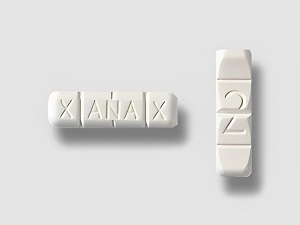How to improve the sleeping disorder problem ?
How to improve the sleeping disorder problem?
Sleeping disorders, often overlooked yet profoundly impactful, affect millions worldwide, disrupting daily life and overall well-being. In this comprehensive exploration, we delve into the causes, effects, and solutions surrounding sleeping disorder , shedding light on this critical aspect of health.
Understanding Sleeping Disorder
Sleeping disorders encompass a range of conditions that interfere with normal sleep patterns, leading to difficulties falling asleep, staying asleep, or experiencing restorative sleep. Common types include insomnia, sleep apnea, restless legs syndrome, and narcolepsy, each with its unique challenges and impacts.
Causes of Sleeping Disorder
Here are the causes of sleeping disorder problem:-
- Stress and Anxiety: Psychological factors such as stress, anxiety, and depression can disrupt sleep patterns, leading to insomnia or other sleeping disorders.
- Poor Sleep Hygiene: Irregular sleep schedules, excessive screen time before bed, and disruptive sleep environments can contribute to sleeping difficulties.
- Medical Conditions: Certain medical conditions such as chronic pain, respiratory disorders, and hormonal imbalances can disrupt sleep.
- Medications: Some medications, including antidepressants, stimulants, and corticosteroids, can interfere with normal sleep patterns.
- Lifestyle Factors: Unhealthy lifestyle habits such as excessive caffeine intake, alcohol consumption, and lack of physical activity can impact sleep quality.
- Environmental Factors: Noise, light pollution, and temperature extremes in the sleeping environment can affect sleep duration and quality.
Effects of Sleeping Disorder
- Daytime Fatigue: Insufficient or poor-quality sleep can lead to daytime fatigue, reduced alertness, and difficulty concentrating.
- Mood Changes: Sleeping disorders are associated with mood disturbances such as irritability, anxiety, and depression.
- Cognitive Impairment: Sleep deprivation can impair cognitive function, affecting memory, decision-making, and problem-solving abilities.
- Physical Health Impacts: Chronic sleep deprivation is linked to increased risk of cardiovascular disease, diabetes, obesity, and other health conditions.
- Decreased Quality of Life: Sleeping disorders can significantly impact overall quality of life, affecting relationships, work performance, and daily activities.
Solutions for Sleeping Disorder
- Improve Sleep Hygiene: Establish a regular sleep schedule, create a relaxing bedtime routine, and ensure a comfortable sleep environment conducive to restful sleep.
- Manage Stress and Anxiety: Practice stress-reducing techniques such as meditation, deep breathing exercises, and mindfulness to promote relaxation and better sleep.
- Address Underlying Medical Conditions: Consult healthcare professionals to diagnose and treat underlying medical conditions contributing to sleeping disorders.
- Avoid Stimulants: Limit caffeine intake, particularly in the hours leading up to bedtime, and avoid stimulant medications that can interfere with sleep.
- Consider Behavioral Therapy: Cognitive-behavioral therapy for insomnia (CBT-I) is an effective non-pharmacological approach to treating insomnia and improving sleep quality.
- Explore Sleep Aids: In cases of persistent sleeping difficulties, healthcare providers may recommend short-term use of sleep aids or medications to restore sleep patterns.
How can sleeping problem be erase it ?
Improving sleep quality and overcoming sleeping problems requires a multifaceted approach incorporating lifestyle changes, stress management, and healthy sleep habits:
- Establish a Consistent Sleep Schedule: Maintain a regular sleep schedule by going to bed and waking up at the same time every day, even on weekends.
- Create a Relaxing Bedtime Routine: Develop a relaxing bedtime routine to signal to your body that it’s time to wind down. This may include activities like reading, taking a warm bath, or practicing relaxation techniques.
- Optimize Your Sleep Environment: Create a comfortable and conducive sleep environment by ensuring your bedroom is dark, quiet, and at a comfortable temperature.
- Limit Screen Time Before Bed: Avoid screens such as phones, tablets, and computers at least an hour before bedtime, as the blue light emitted can disrupt sleep.
- Manage Stress and Anxiety: Practice stress-reducing techniques such as meditation, deep breathing exercises, or journaling to calm the mind before sleep.
- Avoid Stimulants: Limit caffeine and nicotine intake, particularly in the hours leading up to bedtime, as these can interfere with sleep.
- Exercise Regularly: Engage in regular physical activity, but avoid vigorous exercise close to bedtime as it may be stimulating.
- Monitor Your Diet: Avoid heavy meals, spicy foods, and excessive fluid intake close to bedtime to prevent discomfort and nighttime awakenings.
- Seek Professional Help: If sleeping problems persist, consult a healthcare professional for a thorough evaluation and personalized recommendations or treatments.
Medicines available for sleeping problem
When it comes to managing sleeping disorders, medications like Belbien, Ambien, and Zolpidem tablets can play a significant role in promoting restful sleep. These medications belong to the class of sedative-hypnotics and are commonly prescribed for short-term treatment of insomnia or sleep disturbances. Here’s an overview of each medication and how they can help reduce sleeping disorders:
Belbien tablet
Belbien is a brand name for the medication zolpidem, which is a sedative-hypnotic agent used to treat insomnia. It works by enhancing the effects of GABA, a neurotransmitter that inhibits brain activity, leading to sedation and relaxation.
- Mechanism of Action: Belbien acts on GABA receptors in the brain, promoting a calming effect and facilitating sleep onset.
- Effectiveness: Belbien is known for its rapid onset of action, making it effective for individuals who have difficulty falling asleep.
- Dosage: Belbien is available in immediate-release and extended-release formulations, with dosages ranging from 5mg to 10mg depending on the severity of insomnia and individual response.
- Usage: Belbien should be taken shortly before bedtime and only as prescribed by a healthcare provider to minimize the risk of side effects and dependency.
- Side Effects: Common side effects of Belbien may include drowsiness, dizziness, headache, and gastrointestinal disturbances. It’s important to avoid alcohol and other CNS depressants while taking Belbien to prevent additive sedative effects.
Ambien tablet
Ambien is another brand name for zolpidem, similar to Belbien, and is prescribed for the short-term management of insomnia.
- Mechanism of Action: Ambien works by enhancing GABA activity in the brain, leading to sedation and improved sleep quality.
- Effectiveness: Ambien is effective in reducing the time it takes to fall asleep and increasing total sleep time in individuals with insomnia.
- Dosage: Ambien is available in immediate-release and extended-release formulations, with dosages ranging from 5mg to 12.5mg based on individual needs.
- Usage: Ambien should be taken right before bedtime and only as directed by a healthcare provider to avoid tolerance, dependency, and withdrawal symptoms.
- Side Effects: Common side effects of Ambien are similar to Belbien and may include drowsiness, dizziness, headache, and gastrointestinal issues. It’s essential to use Ambien cautiously and avoid alcohol and other sedatives.
Zolpidem tablet
Zolpidem tablets, available as generic versions of Belbien and Ambien, offer a more affordable alternative for managing insomnia.
- Mechanism of Action: Zolpidem tablets work similarly to Belbien and Ambien by enhancing GABA activity in the brain to promote sleep.
- Effectiveness: Zolpidem tablets are effective in improving sleep latency and duration, helping individuals with insomnia achieve restorative sleep.
- Dosage: Zolpidem tablets are available in various strengths, including 5mg and 10mg, with dosages tailored to individual needs and response.
- Usage: Zolpidem tablets should be taken as prescribed by a healthcare provider, typically shortly before bedtime, to maximize effectiveness and minimize side effects.
- Side Effects: Common side effects of zolpidem tablets are comparable to Belbien and Ambien and may include drowsiness, dizziness, headache, and gastrointestinal discomfort.
Overall, Belbien, Ambien, and zolpidem tablets are effective medications for managing insomnia and sleeping disorders when used appropriately under medical supervision. It’s important to follow dosage instructions, avoid alcohol and other sedatives, and consult a healthcare provider if sleeping problems persist or worsen.
Conclusion
Sleeping disorder are complex conditions with multifaceted causes and impacts on health and well-being. By understanding the underlying factors contributing to sleeping disorders, implementing healthy sleep habits, and seeking appropriate medical guidance, individuals can take proactive steps towards improving sleep quality and overall quality of life.





